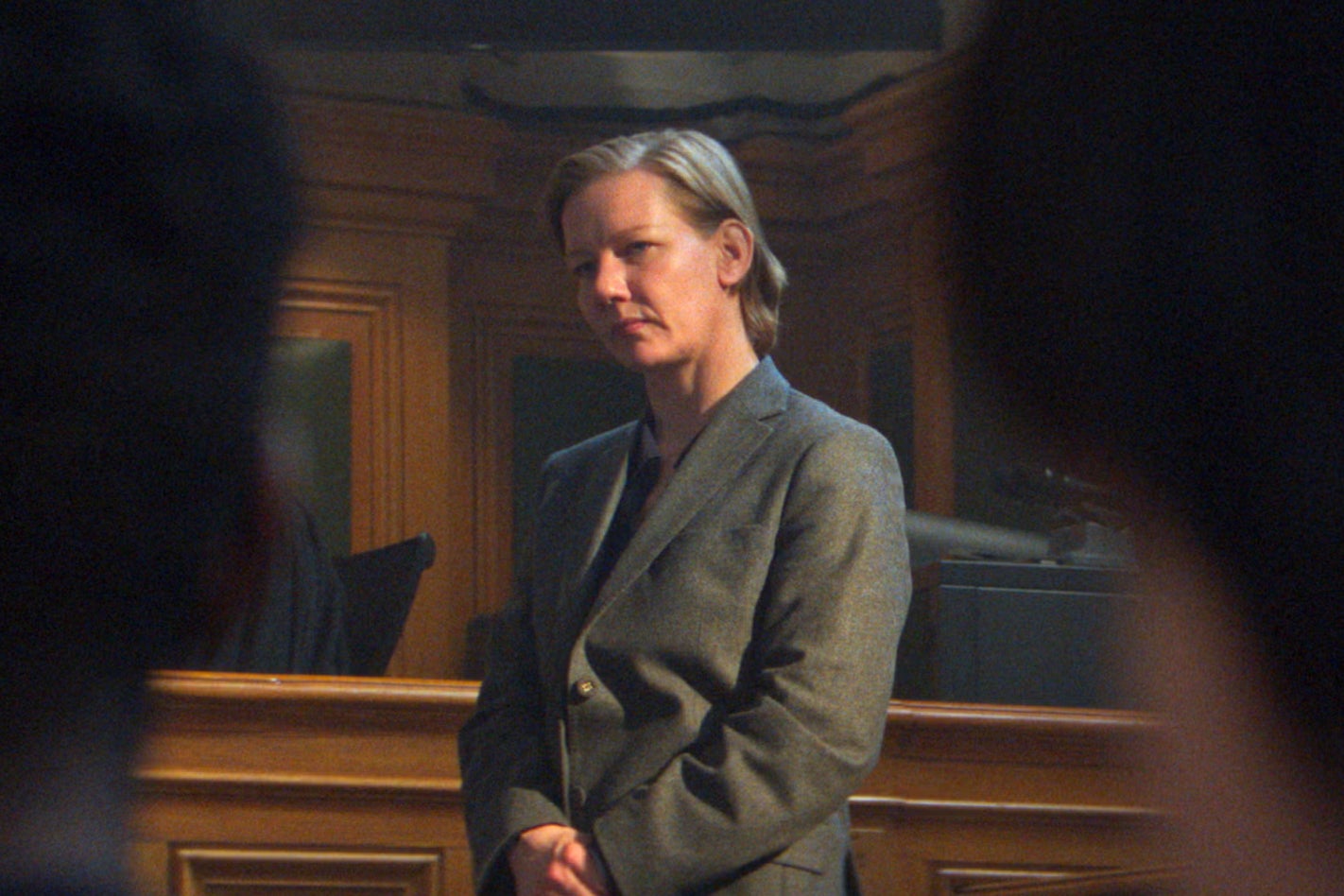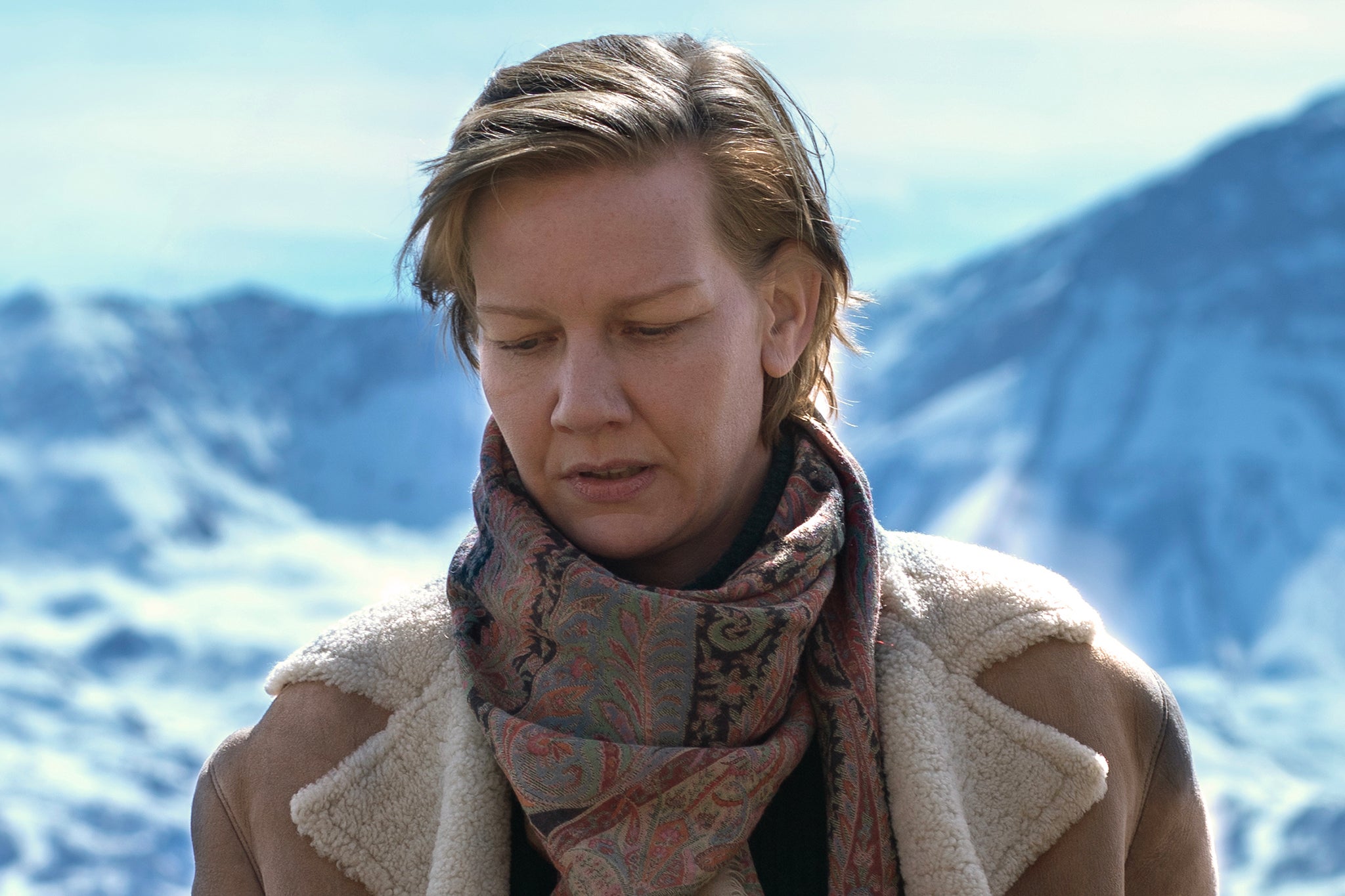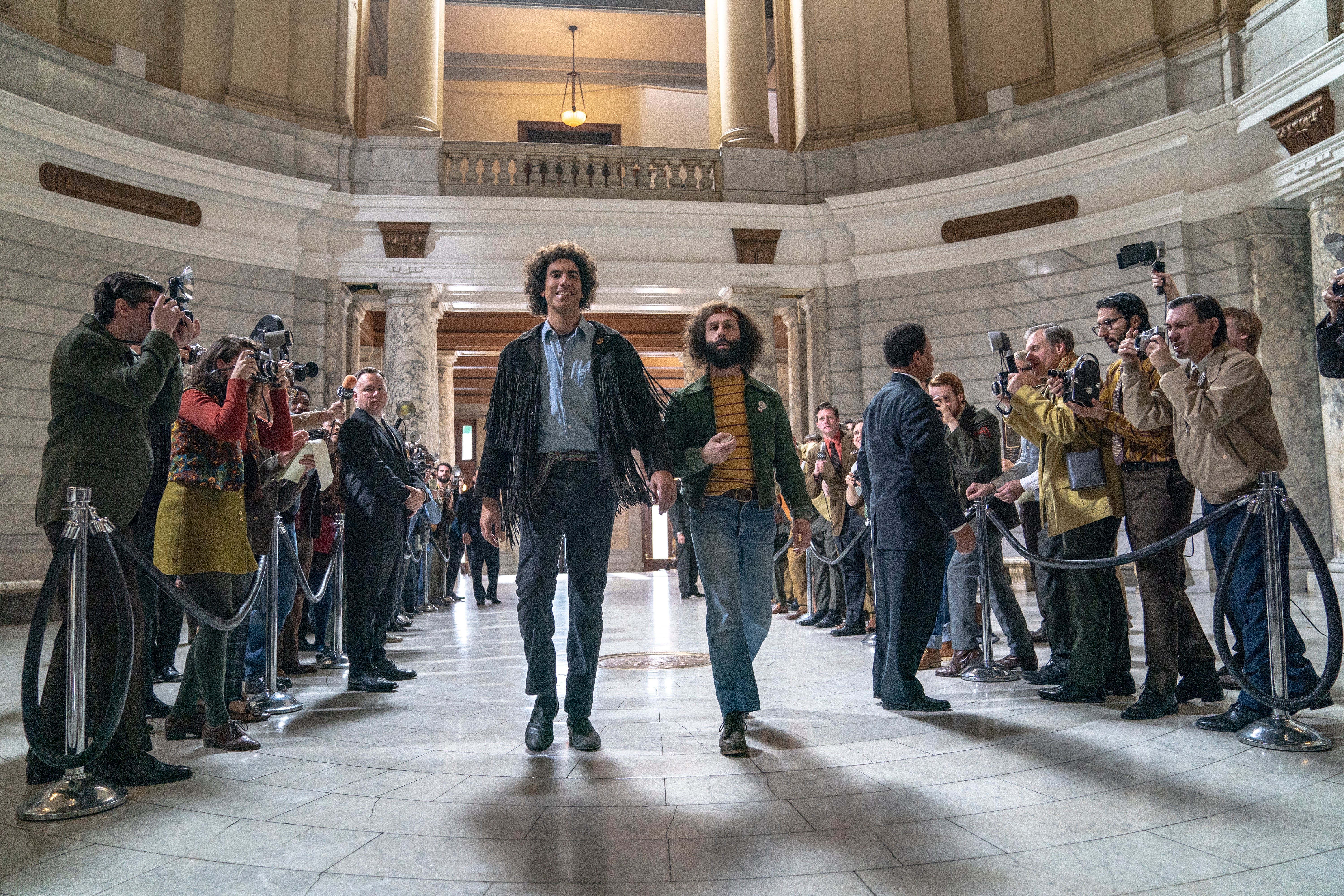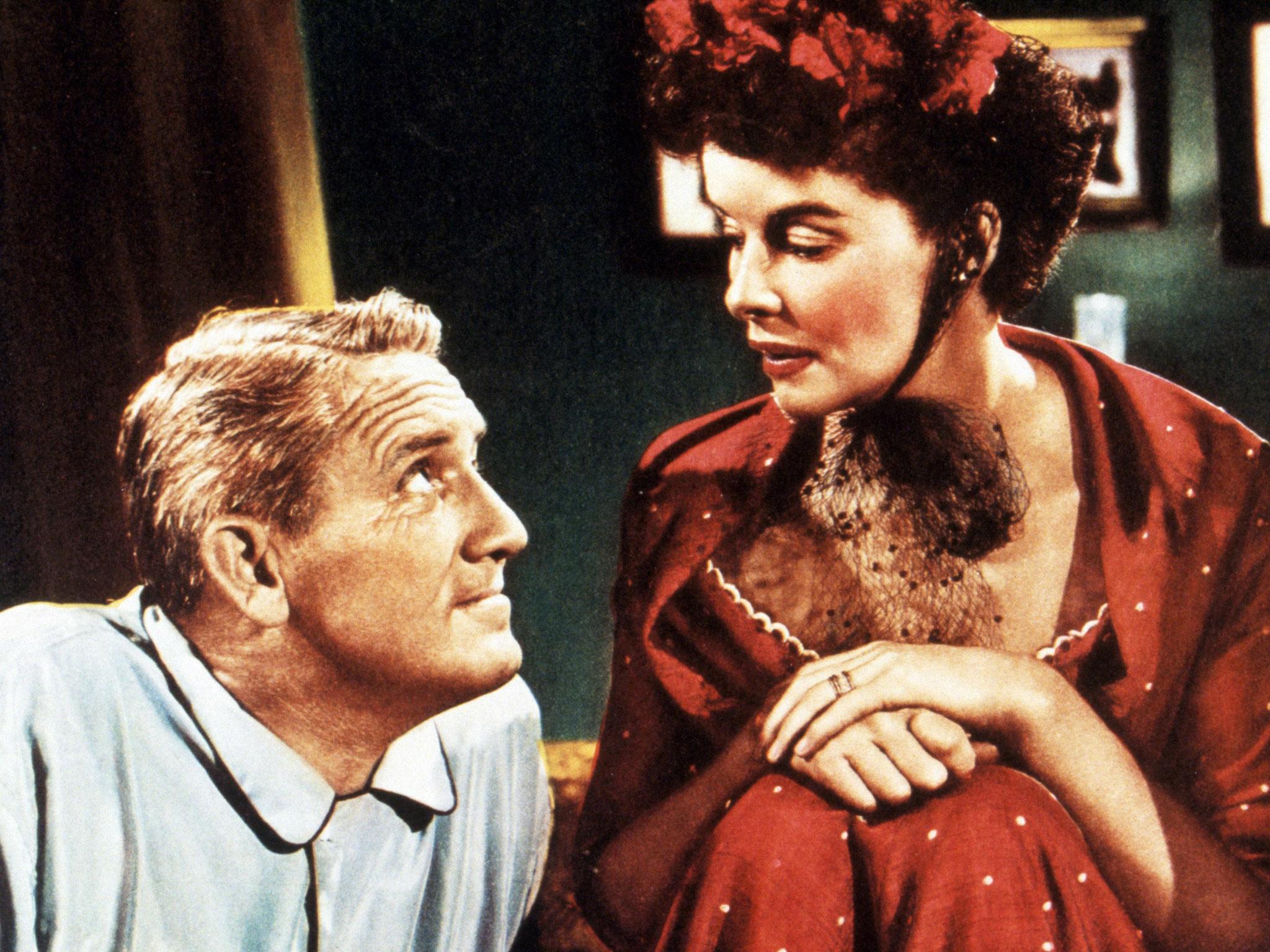Oscar nominee Anatomy of a Fall overturns the verdict on tired courtroom dramas
As a genre, the courtroom drama has become derivative and clichéd, writes Geoffrey Macnab. With the unexpected triumph of Justine Triet’s brilliantly incisive ‘Anatomy of a Fall’, here’s hoping that other on-screen legal battles will follow suit

When it comes to courtroom dramas, we know the clichés. The alcoholic lawyer gets one last shot at redemption (Paul Newman in The Verdict); the sick barrister takes on an impossible case (Charles Laughton in Witness for the Prosecution); juror number eight refuses to change his mind (Henry Fonda in 12 Angry Men); the small-town lawman goes up against the city slicker (James Stewart in Anatomy of a Murder); the callow lawyer vies with his superiors (Tom Cruise in A Few Good Men); the white patrician represents the Black man accused of rape (Gregory Peck in To Kill a Mockingbird).
You’ll have seen these stories, or variations on them, in countless films. If Hollywood screenwriters could be charged for recycling the same material, these ones would be found guilty by unanimous decision. The courtroom drama is one genre that seems to have long since exhausted all the arguments for a stay of execution. For the most part, they are claustrophobic, talk-heavy, melodramatic – and derivative – which is why the recent success of Justine Triet’s Cannes Palme d’Or winner, Anatomy of a Fall is so surprising.
Last week, the movie picked up a handful of European film awards. It is now being tipped for Oscars and Golden Globes. Triet’s minutely observed legal drama turns out to be as much about the inner workings of the French judicial system as it is the dynamics of a marriage. A husband, Samuel Maleski (Samuel Theis), is dead in the snow after tumbling from the balcony of his chalet. Was it suicide? Did he lose his footing? Was he bludgeoned with a blunt instrument by his novelist wife, Sandra Voyter (Sandra Hüller)?

In conventional courtroom sagas, the denouement almost always turns on “guilt” or ”innocence” as decided by the jury, generally after a grandstanding speech by the defence counsel. Triet’s film is far more subtle and ambiguous. Her focus instead is on the inner lives of her protagonists, a couple who were seemingly happy together. The court case, though, exposes the massive fault lines in their marriage: sexual problems, adultery, jealousy. She resented him, too, for his part in the accident that partially blinded their young son. In his death, Samuel has left behind incriminating audio recordings of arguments between him and his wife in which they excoriate one another with a viciousness that puts Richard Burton and Elizabeth Taylor in Who’s Afraid of Virginia Woolf? to shame.
Sandra Hüller gives an astonishing performance as a bisexual novelist who may have killed her husband. She is both the observer and the observed, the predator and the prey. As a writer, she has always drawn on her life in her work, but now she is the focus of a feeding frenzy in court.
The movie offers viewers many contradictory clues as to what caused Samuel’s death. Even the family dog is tied up in the mystery. The point is that people are inscrutable. Often, they don’t understand their behaviour – so what chance do the judge or jury have? Triet’s dark yarn has an existential undertow you simply don’t get with more conventional courtroom fare.
Anatomy of a Fall is one of several recent courtroom dramas, which have begun to reinvigorate this most hidebound of genres. At long last, when it comes to justice for all on screen, new voices are being heard across the dock. Steve McQueen’s Mangrove (2020), about Black defendants protesting against police brutality in Notting Hill, is a long way removed from Rumpole of the Bailey-like stereotypes of gout-ridden lawyers in white wigs harrumphing over their briefs. It makes trenchant observations regarding racism in early 1970s Britain while also evoking the music, food and camaraderie enjoyed by those who used to congregate around the Mangrove restaurant in west London.
In a similar vein, Aaron Sorkin’s The Trial the Chicago 7 (2020) recreates the 1969 trial of the anti-war activists and counterculture leaders accused of inciting a riot at the Democratic National Convention the year before. It’s a vivid and freewheeling romp, liberated from the usual legal stuffiness of its genre.

Both Sorkin and McQueen turn familiar courtroom conventions on their head. French director Alice Diop’s first drama feature Saint Omer (2022) is equally striking. Based on the real-life trial of Fabienne Kabou, a mother who, in 2013, abandoned her 15-month-old baby on a beach at high tide, the film shows how the French legal establishment was utterly flummoxed by this immigrant mother accused of the worst thing in the world. “Closer to Racine than 12 Angry Men,” the Guardian said of the movie, in which a young novelist (Kayije Kagame) observes the trial as research for a book and begins to feel an eerie sense of identification with the accused.
Given the tired tradition of courtroom dramas, it makes sense that directors such as Triet and Diop are wary about claiming the label themselves. It was the case 41 years ago, too, when Sidney Lumet was at work on The Verdict. Lumet’s film, scripted by David Mamet, took a sadistic pleasure in showing how low its ambulance-chasing lawyer Frank Galvin (Newman) had sunk. Frank is so shaky that he can’t even hold his whisky glass to his lips. He gatecrashes funerals, leaving his business card with bereaved relatives. In an act of desperation, he takes on the Boston Catholic Church in a medical malpractice suit. “It’s more about the salvation of the Paul Newman character than it is about the case itself,” Lumet insisted at the time. “The case only serves as the instrument through which the man saves himself.” He also said that Newman’s character was “plumbing the depths of his own soul”, an observation that could be made equally of Hüller in Triet’s cautionary legal tale.

This isn’t to say that a good courtroom drama must be serious. One such film in a very different, much more exuberant groove than either The Verdict or Anatomy of a Fall is George Cukor’s Adam’s Rib (1949). The film sees an attorney power couple (played by Spencer Tracy and Katharine Hepburn) go head-to-head in the courtroom when Hepburn’s character takes up the defence of the endearingly scatty Doris Attinger (Judy Holliday), who attempted to murder her philandering husband (Tom Ewell).
The US censors complained furiously about the movie, grumbling that it wasn’t treating the judicial system with sufficient respect. They argued that it was using adultery for laughs. That, though, was its strength. Adam’s Rib is funny and subversive – a battle-of-the-sexes comedy that refuses to take the lawyers, their case, or their marriage even remotely seriously.
When it comes to legal dramas, the fetish for authenticity is misguided
When the American Film Institute published its list of the 10 greatest courtroom dramas, Adam’s Rib was nowhere to be seen. (It did, however, turn up instead on the AFI list of romantic comedies). The omission is indicative of a dangerous presumption: that legal movies must be sombre occasions. The films on the AFI Top 10 include such earnest efforts as 1961’s Judgment at Nuremberg (Nazis on trial), 1979’s Kramer vs Kramer (a very emotional divorce case) and 1988’s A Cry in the Dark (Meryl Streep murdering an Australian accent playing a mother wrongfully jailed for killing her child).
Other titles in the AFI Top 10 went to absurd lengths to be as realistic as possible. When director Richard Brooks was making his 1967 screen adaptation of Truman Capote’s true crime novel, In Cold Blood, he recruited seven of the actual jurors in the original case to play themselves in the recreation of the trial. His fellow director Otto Preminger went one better, casting the legendary real-life Boston lawyer Joseph N Welch (famous for upbraiding anti-communist witch hunter Joseph McCarthy on live TV) as the judge in Anatomy of a Murder.

Arguably, this fetish for authenticity is misguided. The most memorable courtroom dramas aren’t those that get the surface details right; they’re the ones that drill deeper and reveal their characters in all their contradictions and vulnerability to expose human nature at its best and its worst.
The genre has long suffered from this narrowness of perspective. Diversity, for example, has been incredibly slow to creep into courtrooms on screen. Now, thankfully, new filmmakers are being given the briefs and different case histories are at last being heard sympathetically.
“You never really understand a person until you consider things from his point of view… until you climb inside of his skin and walk around in it,” Gregory Peck’s Atticus Finch tells his daughter in To Kill a Mockingbird. It’s a line that perfectly sums up the insight and empathy afforded by the best legal dramas. The jury may still be out on the appeal and relevance of such a hackneyed genre, but outstanding films like Anatomy of a Fall are bound to sway the verdict back in its favour.
‘Anatomy of a Fall’ is in cinemas now






Join our commenting forum
Join thought-provoking conversations, follow other Independent readers and see their replies
Comments